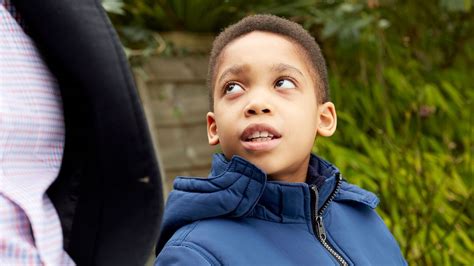As one takes the most basic stroll through the Internet, it only takes a few minutes to find a subject on which there are multiple people embroiled in an emotionally charged argument. Be it politics, covid, sports, the economy, or any of the endless topics you find online, the outcomes are often still the same: people who are already convinced they are right often calling names and raging at each other with no intention of having a rational conversation.
When one works with families for a living in the mental health field, there is a very similar feeling in most circumstances. The parents, or the children, often feel they already know the answers to all, or most, of their problems but the rest of the family just doesn’t want to do their part for whatever reason to fix the situation.
The root of the conflict in both situations is often the same: lacking the capacity to see the other people’s point of view. This may seem like a trivial skill to some people but having the ability to see a situation from different possible angles is one of the most important skills a person of any age can have.
Does this mean you have to like or accept everyone’s opinion or point of view? Of course not. However, having the ability to see multiple sides of an argument allows you to have the best possible interpretation of the facts. This skill is typically called critical thinking.
Similarly, when it comes to dealing with emotions or emotionally charged situations this skill comes into similar use. As we have discussed in other places on this blog, at their simplest our emotions are very much our reactions to our interpretations of everything that happens to us, be that a social interaction, a thought, or any event.
If we look at emotions in this light, it becomes obvious that if we want to increase our ability to manage our emotions more effectively, a very good place to start is with our own thinking.
In this light, we invite you to take a few fairly simple steps at home to help your child become a better critical thinker. As a note, although it is difficult to nail down a definition for critical thinking, we will define it here as the ability to see a situation from multiple perspectives and consider different possibilities before forming a judgment.
Help Them Build Empathy
This is an important skill that everyone should have but that many people don’t exercise when they are interacting with other people. Empathy at its core is simply being able to understand another person’s feelings. You don’t have to like them or agree with them, just understand them. A simple way to practice this at home is if you witness a disagreement on television or the Internet, help your child be mindful of possible points of view for everyone involved and remind them of how those points of view can lead to different emotional reactions to a seemingly simple situation.
Help Them Learn to Reframe Situations
For many people, life is not much more than a series of routines. We interpret most things we experience in much the same way every day. In some ways, this is helpful as it helps us get into a comfort zone and doesn’t cause us to waste mental energy thinking about trivial things. However, when something big happens, a job is lost, a loved passes on, or we are diagnosed with an illness, we are asked to make sense of the situation. So it is for a child, who is often going through situations that may seem minor to us as adults but is important to them.
If you, as a parent, are able to sit with them and help them go through different ways to interpret the situation, soon they will be able to see how different ways of framing a complex situation can lead to different emotions and reactions.
Help Them Be Aware of Their Own Reactions
When a child, or any person, becomes emotional, there is obviously a reason why. When your child has a large reaction to any situation, observe their behaviors, words, and any other relevant information. After they have had a chance to calm appropriately, sit with them and try to work backwards and help them reverse engineer where the reactions may have come from. Did someone upset them? Did they have a thought that scared them? Being aware of your triggers and reactions is a large part of managing your emotions, and when you are able to add in the ability to look at different ways to interpret a situation they can begin to see how their emotions change based on their interpretation.
If you as a parent are able to embrace these steps in a consistent manner and model them for your children as much as possible, without a doubt you will see a child who learns to have less extreme reactions to emotions but also a person who is able to manage social disagreements and conflict in much more effective ways throughout their lives.
Do you have a topic on parenting or mental health you are interested in but haven’t seen covered? Please drop us a comment or email and we will be glad to write on any topic.

